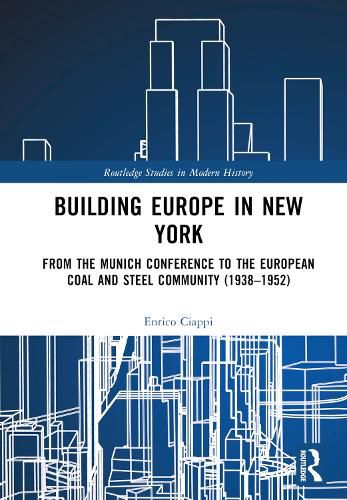Readings Newsletter
Become a Readings Member to make your shopping experience even easier.
Sign in or sign up for free!
You’re not far away from qualifying for FREE standard shipping within Australia
You’ve qualified for FREE standard shipping within Australia
The cart is loading…






This book reappraises the origins of the European Union through the lens of the private experts who advised Western governments on war and peace throughout the 1940s, particularly the partnership between the so-called 'Father of Europe' Jean Monnet and the US think tank Council on Foreign Relations.
American support for European integration has never been a philanthropic enterprise, but part of a long-term strategic design with roots in World War II informal planning and diplomacy. While advising the Roosevelt and Truman administrations, the Council on Foreign Relations formed a policy network with European policymakers sharing similar values and goals. The new archival findings of this volume reveal that the CFR-Monnet partnership proved instrumental in stimulating debate on post-war order, improving inter-Allied cooperation and then creating the first supranational institution in history, the European Coal and Steel Community. The first milestone of the European Union resulted from a joint private-public effort which originated outside the channels of official diplomacy.
Scholars and graduate students interested in diplomacy, geopolitics and political thought will discover unexplored, but substantial, links between American strategic thinking, transatlantic public diplomacy and European politics.
$9.00 standard shipping within Australia
FREE standard shipping within Australia for orders over $100.00
Express & International shipping calculated at checkout
This book reappraises the origins of the European Union through the lens of the private experts who advised Western governments on war and peace throughout the 1940s, particularly the partnership between the so-called 'Father of Europe' Jean Monnet and the US think tank Council on Foreign Relations.
American support for European integration has never been a philanthropic enterprise, but part of a long-term strategic design with roots in World War II informal planning and diplomacy. While advising the Roosevelt and Truman administrations, the Council on Foreign Relations formed a policy network with European policymakers sharing similar values and goals. The new archival findings of this volume reveal that the CFR-Monnet partnership proved instrumental in stimulating debate on post-war order, improving inter-Allied cooperation and then creating the first supranational institution in history, the European Coal and Steel Community. The first milestone of the European Union resulted from a joint private-public effort which originated outside the channels of official diplomacy.
Scholars and graduate students interested in diplomacy, geopolitics and political thought will discover unexplored, but substantial, links between American strategic thinking, transatlantic public diplomacy and European politics.